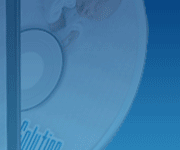Playing Mozart music to premature babies seems to help them gain weight faster and become stronger, new research found.
Once a day for two consecutive days, doctors played either 30 minutes of music by the 18th-century composer Wolfgang Amadeus Mozart, or no music, to 20 pre-term babies at the Tel Aviv Medical Center in Israel. After listening to the music, the babies were calmer and so expended less energy than the no-music group. When babies' energy expenditure is decreased, they don't need as many calories to grow, so can gain weight and thrive more quickly – exactly what preemies need.
"It's not exactly clear how the music is affecting them, but it makes them calmer and less likely to be agitated," said researcher Dror Mandel, a lecturer at Tel Aviv University.
Though the sample size was small, the scientists said their findings were statistically significant.
Previous research has shown that music can reduce stress, decrease heart rate, and increase oxygen saturation in preterm infants. Oxygen saturation is a measure of the amount of oxygen carried in the blood relative to the maximum amount the blood could carry. When this number gets low it can be a sign of heart or lung problems.
The researchers didn't try playing any music other than Mozart's, so they don't know whether the effect would hold true for other tunes.
"We want to know if what we found is a Mozart effect, or just music," Mandel told LiveScience. "I think that other composers will also have effects, however it might be that the Mozart music has particular effects compared to other composers."
The researchers decided to try Mozart music because of a 1993 study that found that college students could temporarily improve their performance on spatial–temporal tasks by listening to a Mozart sonata for 10 minutes a day.
"The repetitive melodies in Mozart's music may be affecting the organizational centers of the brain's cortex," Mandel said. "Unlike Beethoven, Bach or Bartok, Mozart's music is composed with a melody that is highly repetitive."
However, the so-called Mozart effect has sometimes been taken too far. A company called Baby Einstein (now owned by Disney) that publishes a series of Baby Mozart videos and music disks offered a refund last year for all Baby Einstein videos, after receiving complaints that the company had falsely claimed the videos were educational.
The Israeli researchers plan to test out different kinds of music soon. One team member suggested that rap music might evoke the same response as Mozart, since it has a similar pulsating and repetitive frequency.
Mandel and his colleague Ronit Lubetzky published their findings in the January issue of the journal Pediatrics.
Subscribe to:
Post Comments (Atom)






No comments:
Post a Comment